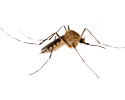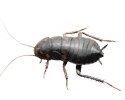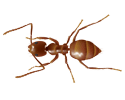How Rodents Affect Childhood Asthma
A common cliché in TV shows or movies is to depict a “nerdy” character with an inhaler in hand. Perhaps it’s to hammer the inaccurate point home that these individuals are not athletic and would prefer to do things inside. It’s a puzzling theme, however, since asthma is a very serious disease and can sometimes be life threatening. 25 million Americans have been diagnosed with asthma, resulting in almost 2 million hospital visits per year and over 1,500 deaths.
Even more striking is how asthma disproportionately affects children, with their age group representing half of those affected in the country. Due to smaller airways and underdeveloped respiratory systems, childhood asthma can be particularly dangerous. With rodents beginning to make their way into Houston homes during this time of year, this can be even more problematic. In this blog, we discuss why rodents exacerbate asthma and what you can do as a parent to help your child.
What Is Asthma and Why Do Rodents Make It Worse?
First and foremost, asthma is a chronic, long-term disease that currently does not have a cure. Even with the most advanced medical techniques, it can remain latent in one’s body until provoked by a “trigger.” This is a response occurring in one’s airways upon inhaling the irritant, which could range from pollen to animal dander. The tubes connecting to the lungs become inflamed, causing a thickening around the airway walls and restricting breathing.
People can be allergic to rodents in the same way as cats or dogs. Especially when they’re present in a closed environment, rodent droppings, dead skin, or their decomposing bodies can be inhaled and trigger an asthma attack. Your children are particularly susceptible to this, and it’s possible you may not even know he or she has asthma.
How to Tell if Your Child Has Asthma
Asthma is the leading cause of chronic illness in children and is growing exponentially. If you suspect a rodent problem in your home, consider watching out for signs that your child may be reacting to their presence. One of the most defining characteristics of asthma is a faint whistling sound upon exhaling. This wheezing, along with frequent and intermittent coughing, is probably the most noticeable symptom. A few other things you can monitor:
- Chest tightness or pain
- Shortness of breath
- Fatigue after minimal activity
If any of these symptoms become worse, immediately rush your child to a hospital for further medical attention. Asthma attacks can be life-threatening without proper assistance.
What Can You Do Beyond Medical Care?
We never recommend do-it-yourself pesticide usage in the home, but this is doubly important with respect to asthma. Exposure to unnecessary chemicals can weaken a child’s airway and make them more vulnerable to other irritants. If you happen to suspect a rodent problem affecting the health of your kids, always consult with a professional pest control service. There are many solutions to rodents in the home, and a professional is in the best position to determine the best fit for you and your home.
Additionally, you should be taking steps to ensure a rodent infestation doesn’t take root in your home. This includes reducing clutter wherever possible, sealing cracks and entrances around your home, ensuring doors seal properly and that food, including pet food, is stored properly in an air-tight container.
If you have a rodent issue and need the experts to step in, contact Holder’s Pest Solutions today.



